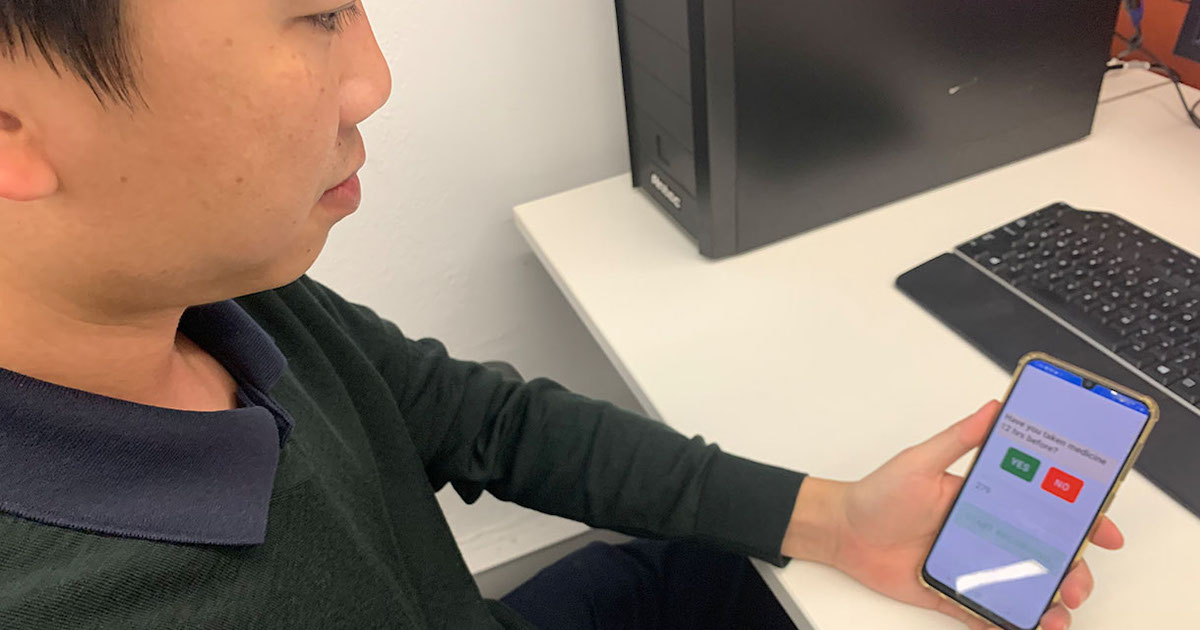A research team led by engineers and neurologists from RMIT University has developed a mobile app that uses a person’s voice to search for Parkinson’s disease and severe COVID-19.
HOW IT WORKS
The app uses AI to analyze the changes in a person’s voice in just 10 seconds. The research collected voice recordings of people with Parkinson’s and a control group saying three sounds – A, O and M, which resemble a Hindu meditation chant.
The same three sounds and AI analysis method were also used to identify COVID-19 patients requiring further clinical treatment or hospitalization.
The results of this research have so far been published in three journals: IEEE Journal of Translational Engineering in Health and Medicine, IEEE Access and Computers in Biology and Medicine.
WHY IT MATTERS
Diagnosing Parkinson’s can be difficult because symptoms vary from person to person — although common symptoms include slow movements, tremors, rigidity, and imbalance. Currently, this condition can be diagnosed through a neurologist’s evaluation, which can take up to 90 minutes.
The research team claimed that previous efforts to develop a computerized voice assessment to detect Parkinson’s and lung infections had been unsuccessful due to the wide variation in people’s voices. The voice of people with Parkinson’s changes due to stiffness, tremors, and slowness, and this can be difficult for experienced clinicians to assess.
The use of the three sounds “Result[ed] for more accurate detection of the disease,” said Dinesh Kumar, senior researcher and professor at RMIT University School of Engineering.
Co-researcher Dr. Quoc Cuong Ngo also claimed that their screening app is “faster and better” than similar AI-based approaches. “Our screening test app can measure with great precision how the voice of someone with Parkinson’s disease or [a] Person at high risk of hospitalization due to COVID-19 differs from healthy people.”
According to a media release, the research team will now work on a larger observational study to record the course of Parkinson’s and lung diseases. They also want to test the effectiveness of their AI technology on other neurological diseases and sleep disorders.
In addition, the team is seeking a commercial and clinical partner ahead of the clinical trial planned for next year. Currently they have selected Košice University of Technology in Slovakia, Surabaya University in Indonesia and Rajshahi University of Engineering and Technology in Bangladesh for this upcoming trial.
MARKET SNAPSHOT
American startup in June Rune Labs has received 510(k) clearance from the US Food and Drug Administration for its StrivePD app, which monitors Parkinson’s patients’ symptoms via Apple Watch.
ASX-listed company ResApp, recently acquired by Pfizer, has also developed an AI-based mobile screening app that uses a person’s cough records to detect COVID-19.
In other related news, SingHealth added a Parkinson’s symptom tracker feature for his Health Buddy app.
ON THE RECORD
“Early detection, diagnosis and treatment could help manage these diseases, so making screening faster and more accessible is crucial. This research will enable a non-contact, easy-to-use and inexpensive test that can be routinely performed anywhere in the world where clinicians can remotely monitor their patients. It could also encourage a community-wide screening program that reaches people who might not otherwise seek treatment until it’s too late,” Prof Kumar said of her research.
#AIbased #speech #screening #app #Australia #detect #Parkinsons #disease #severe #COVID19


Leave a Comment